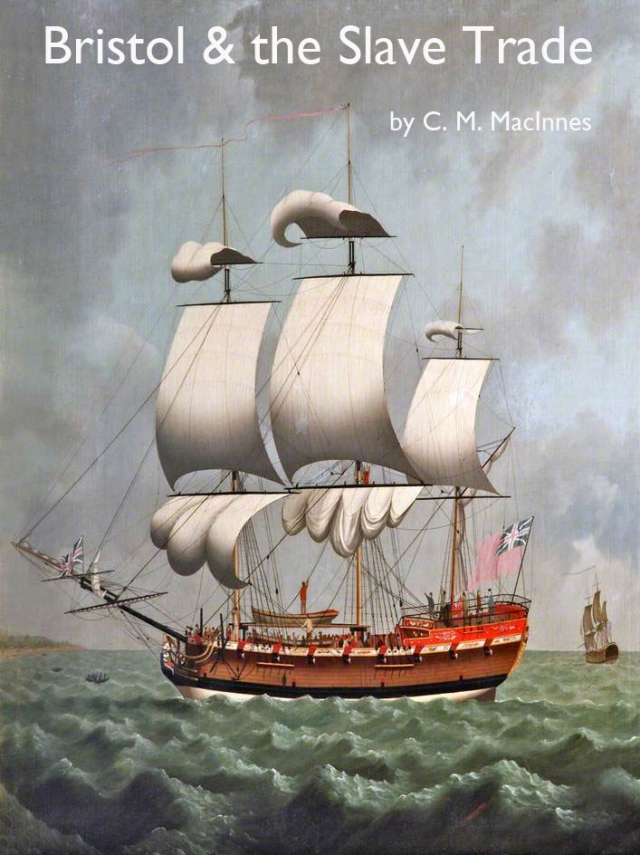Bristol and the Slave Trade
Classic Pamphlet

Captain Thomas Wyndham of Marshfield Park in Somerset was on voyage to Barbary where he sailed from Kingroad, near Bristol, with three ships full of goods and slaves thus beginning the association of African Trade and Bristol. In the late sixteenth and seventeenth centuries, Bristol was not a place of association when dealing with African trade and slavery. They abhorred the idea of trading humans. However with the development of English colonies in the New World, public opinion had started to change on the issues of slave trade. Large plantations in Virginia and the Carolinas were in need of cheap labour. Even with English volunteers, indentured servants, and people even being rounded and tied up to send overseas, it still wasn't enough to sustain these plantations. This turned England's attentions towards the African Slave Trade.
From this, we start to see a rise in monopolistic organizations like the Royal African Company. Bristol ensured that it was going to reap the rewards and defended itself from constant attacks from the kings chartered Company which was trying to exclude Bristol from profit and rewards. Bristol joined in on a petition to the House of Commons that allowed the African Trade to be open to all who paid a ten percent fee, the chartered company had to continue to bear the cost of maintenance of forts along the West Coast, and the position of private traders was legalized by a modification on the Company's monopoly. In 1750, after about eighty years of this political squabbling between traders, the regulated Company of Merchants trading to Africa replaced the old Royal African Company. This new company was to be governed by nine representatives from Bristol, Liverpool, and London. Bristol protested again, saying how the coastal officials favoured London and were hindering the other trade depots.
Despite Bristol's many complaints, it thrived on the slave trade and grew ever richer. It did relinquish its slave market when it found safer ventures to thrive on and even though it was one of the biggest African trade ports in England, Bristol started to abhor the selling of slaves in the nineties. Higher men of status were usually the ones involved in the trafficking of slaves, and even though we judge them now looking back, at the time when they thought Africans were merely beasts and not their equal, it is understandable why they got involved in this deplorable venture. Some slave firms were small one-man owned businesses, but more often than not, slave firms were of a larger scale with partners from two to six or more. And, obviously, the larger firms were found closest to the coast. Even though the firms may have been large, the ships were incredibly small. The men procured for these voyages were usually drunks or men with sufficient debts to pay off. The death risk was high and the anti-slave campaign was starting to take off, which caused less people wanting to get involved with it. England was also at constant war with neighbouring countries and was under threat of possibly having ships attacked at sea from either France or pirates, thus making the business even more difficult. Sometimes Africans would even mutiny the captain if he treated them poorly. Slaves from England usually were more expensive, and African slaves could be sold for low costs. Selling slaves in the colonies also made it difficult from local governmental stipulations on slave trade, fluctuating prices, and plantation owners changing deals and bargains. Finally after twenty years of gallant and unremitting toil, the slave trade was abolished. Great Britain then decided to take it upon themselves to seek slavery abolished throughout the world...
This resource is FREE for Secondary HA Members.
Non HA Members can get instant access for £3.49

